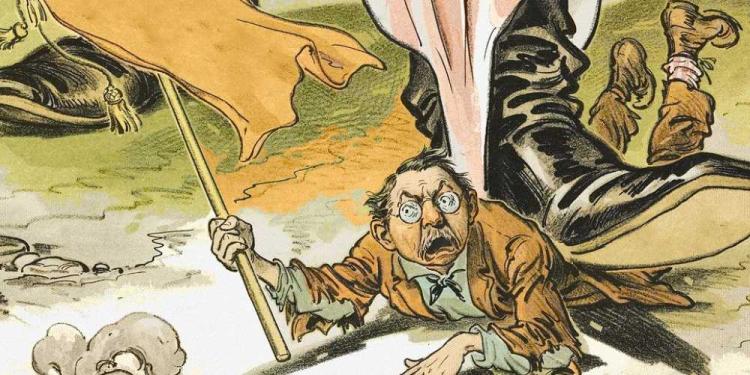Political Alignments And Gambling – Navigate Yourself With Games!
Posted: February 28, 2025
Updated: February 28, 2025
-
How do different ideologies gamble?
-
A guide to politics and gambling
-
Political alignments and gambling

Political alignments and gambling are deeply connected. Different ideologies shape how gambling is viewed and regulated. While some governments see it as a personal choice, others control or ban it. Political beliefs influence whether gambling is considered a business, a social issue, or a national resource. Understanding these connections helps explain global gambling policies.
Gambling and politics might seem like separate topics, but they intersect in surprising ways. Political ideologies shape how governments regulate gambling. Some governments encourage it, while others restrict or even ban it. Political alignments determine if gambling is seen as an economic opportunity or a moral problem. Throughout history, different political movements have shaped gambling laws based on their core beliefs. Some of the political alignments and gambling will never agree, and this is why ideologies exist to this day!
Governments and political parties take different approaches to gambling. Some see it as a form of entertainment and taxation, while others view it as a threat to social order. Political alignments influence the level of regulation and public perception. Some countries strictly control gambling, while others create a free market. Political ideologies determine whether gambling is treated as a social issue, a business, or a national industry. Register at any of the online casino sites in the US to learn more about international gambling!
Populism – Political Alignments And Gambling
Populist movements often promise to protect the people. However, their policies can sometimes create unintended consequences. Banning gambling might seem like a way to prevent addiction. However, it can lead to illegal gambling markets. These underground operations lack regulations, making them even riskier. Populism tends to focus on the needs of the majority. However, gambling bans impact specific industries and workers. Casinos, betting companies, and online platforms provide jobs.
When governments shut them down, they remove a source of income. Populist leaders claim to act in the people’s interest. However, their actions often reduce economic opportunities. According to Civil Georgia, the Georgian government was criticized. A portion of people claim that the total ban on gambling was just an act of populism. Therefore, they propose it was a veiled attempt to harm critical media, and truthfully, it was economically counterproductive. Register at VAVE Casino for decentralized gambling games!
Liberalism And Its View On Casinos
While liberalism promotes freedom, at the same time? It fully promotes individualism too. Therefore, this is a black sheep among the political alignments and gambling. Under this system, we can view gambling as microcapitalism. Liberalism promotes individual freedoms. This ideology sees gambling as a personal choice. If people want to spend money on gambling, they should have the right to do so. Liberals argue that banning gambling limits personal freedom. They believe that the government should not interfere with private choices. Gambling fits into the liberal belief in free markets.
In a capitalist system, businesses should operate without excessive regulation. Casinos, betting platforms, and lotteries generate revenue. They create jobs and attract tourists. Many liberal economies see gambling as a profitable industry. Rather than banning it, they regulate it to ensure fairness. Liberals argue that responsible gambling is possible. They support education and self-regulation rather than strict laws. They believe that people should be informed about risks. However, they should not be prevented from making their own decisions. In liberal societies, gambling companies must follow ethical business practices.
Authoritarianism – Political Alignments And Gambling
Authoritarian governments control every aspect of society. They use gambling as a tool rather than a free-market industry. If gambling benefits the state, it is allowed. However, if it threatens social control, it is restricted. Many authoritarian countries have state-run casinos. These casinos generate revenue that supports the government. In some cases, authoritarian regimes allow gambling for foreign visitors. They see gambling as an opportunity to attract tourism. However, they prevent their citizens from participating. This approach keeps money flowing into the country while avoiding social issues linked to gambling.
Unlike liberal democracies, authoritarian states do not promote personal freedom. They limit access to gambling to maintain control. According to NK News, North Korea sold illegal casinos to South Korea. Therefore, we can propose the idea that authoritarianism allows gambling as long as it serves the government. However, it will likely not allow individuals to attain money, and thus power. Similarly to communism, it might earn the players valuables and assets.
Socialism And Gambling
Political alignments and gambling often do not meet eye to eye. However, socialism’s values can create a long chain of debate with different opinions and aspects to observe. According to Reddit, most socialist people believe that policing and parenting workers are going against socialism, even if many acknowledge that industrialized gambling can be problematic. Socialist governments often regulate gambling heavily. They view private casinos as a way for the rich to exploit the less fortunate.
However, some socialist nations allow state-controlled gambling. This approach ensures that profits are distributed for public benefit. State lotteries and casinos generate revenue for social programs. Socialists argue that gambling addiction harms workers. When people lose money, they struggle financially. This leads to increased reliance on government aid. Some socialist leaders see gambling as a distraction from economic issues. Instead of focusing on fair wages and job security, people gamble in hopes of financial success.
Communism – Political Alignments And Gambling
Communist ideologies generally oppose gambling. They see it as a capitalist practice that encourages greed. However, some communist governments have allowed gambling under strict conditions. In these cases, gambling operates as a state-controlled industry. Shared wealth is a central principle of communism. Gambling promotes individual profit, which contradicts this idea. However, state-run gambling exists in some communist countries. These operations collect money from players and redistribute it. Horse racing and lottery systems function under government supervision.
In some cases, underground gambling thrives in communist states. Since legal options are limited, people seek alternatives. This creates black markets that lack regulation. Instead of preventing gambling, strict laws drive it underground. However, gambling can work under communism. For example, we can see shared pot horse racing promoted. Furthermore, we experienced a communist, semi-authoritarian government in Hungary, and we won valuables and assets such as cars and houses on gambling instead of cash. Giving out cash can disrupt the balance of the ideology.
Nationalism
The last among the political alignments and gambling is one of the most beneficial for those living next to the casino! Nationalism focuses on protecting national interests. Some nationalist policies promote gambling for economic growth. However, they prioritize state benefits over individual gain. Gambling revenue supports national projects and public services. This approach strengthens the country while preventing private companies from dominating the industry. Nationalist leaders argue that gambling should benefit the nation as a whole. They see it as a tool for economic independence. By controlling gambling, governments ensure that money stays within the country. This serves national goals instead of private wealth.
This prevents foreign companies from profiting at the nation’s expense. Despite promoting national interests, some nationalist governments restrict gambling. They believe that gambling weakens social values. Instead of encouraging casinos, they focus on traditional industries. For example, Monte Carlo bans residents from gambling. Therefore, all gambling activities in a gambling-centered city are going to generate taxes for the government, and the nation. Thus, tourists who spend money on gambling afford the well-being of residents. Register at VAVE Casino to play decentralized gambling games today!












